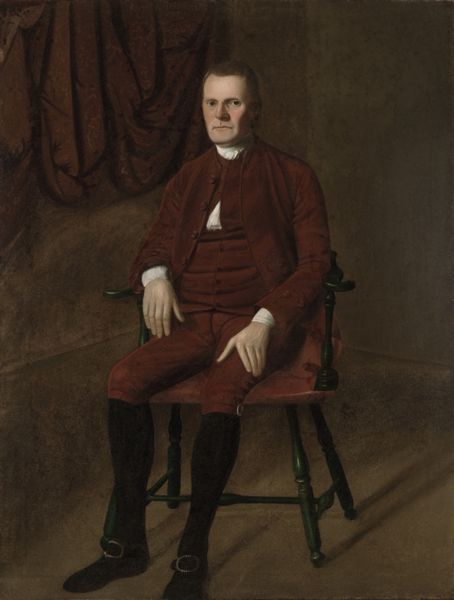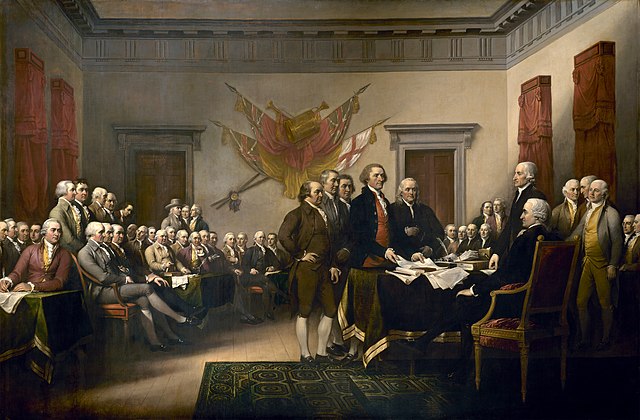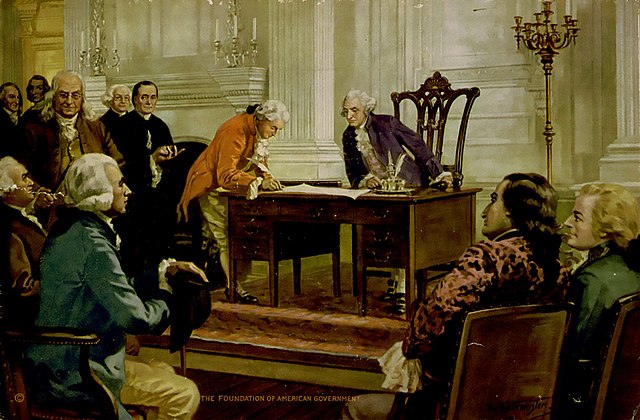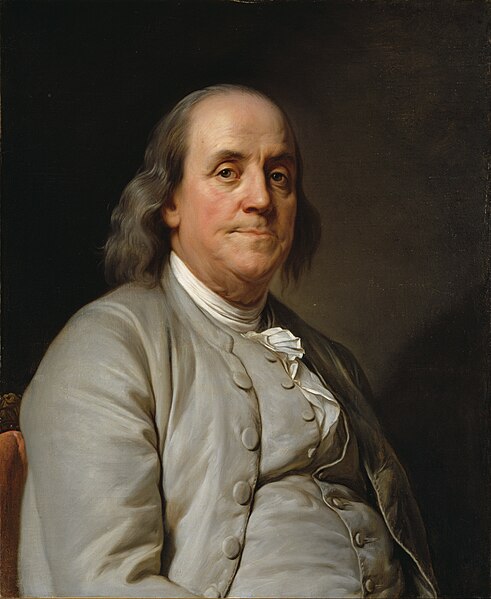Roger Sherman was an early American statesman, lawyer, and a Founding Father of the United States. He is the only person to sign all four great state papers of the United States: the Continental Association, the Declaration of Independence, the Articles of Confederation, and the Constitution. He also signed the 1774 Petition to the King.
Roger Sherman
The Declaration of Independence by John Trumbull (1819) depicts the Committee of Five presenting its work to Congress. Sherman is second from the left.
Foundation of the American Government. Roger Sherman is closest behind Morris, who is signing the Constitution. 1925 painting by John Henry Hintermeister.
The Committee of Five, including Sherman, is depicted on the pediment of the Jefferson Memorial in a sculpture by Adolph Alexander Weinman.
Founding Fathers of the United States
The Founding Fathers of the United States, commonly referred to as the Founding Fathers, were a group of late-18th-century American revolutionary leaders who united the Thirteen Colonies, oversaw the War of Independence from Great Britain, established the United States of America, and crafted a framework of government for the new nation.
The Committee of Five (Adams, Livingston, Sherman, Jefferson, and Franklin) present their draft of the Declaration of Independence to the Second Continental Congress in Philadelphia on June 28, 1776, as depicted in John Trumbull's 1819 portrait
George Washington, a key Founding Father, was commanding general of the Continental Army during the Revolutionary War and a Revolutionary hero, presided over the Constitutional Convention and became the nation's first president in April 1789.
Thomas Jefferson, a key Founding Father, was the primary author of the Declaration of Independence, which Pulitzer Prize-winning historian Joseph Ellis says contains "the most potent and consequential words in American history".
Benjamin FranklinEarly advocate of colonial unity, was a foundational figure in defining the US ethos and exemplifying the emerging nation's ideals.







